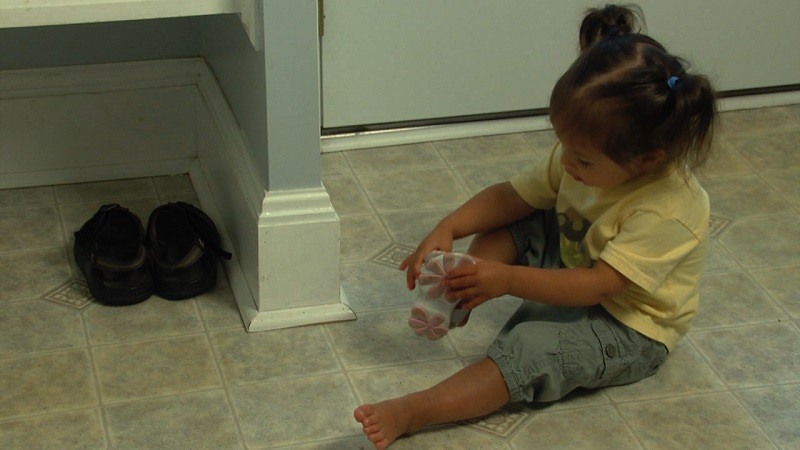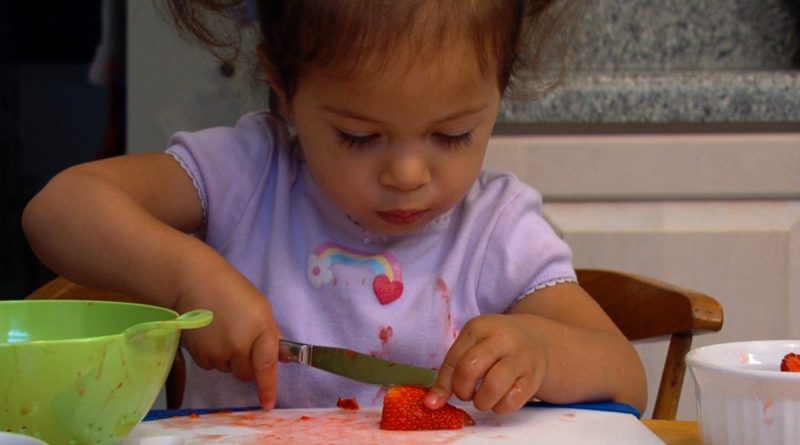Is your child “school ready”?
What does it mean to be ready or not ready for school when your child is four years old and just about to start their formal education? How do you prepare them? M&D asked Louise Livingston, Head of Training at the Maria Montessori Institute, who has over 30 years of experience in education, an MSc in Educational Neuroscience, and is currently undertaking a PhD in Educational Neuroscience.
There is a huge difference of opinion about what children need to be ready for school. In a recent survey by YouGov, teachers reported that more than half (54%) of children starting reception are not “ready for school”. By contrast, 89% of parents surveyed said they felt their child was ready. But what exactly makes a child “school ready”?
Research on the academic and social skills required for children starting school asked teachers and parents what abilities they think children should have mastered by the time they start school. Teachers said they expected a few academic skills such as recognising numbers and letters, holding a pen, and having some familiarity with nursery rhymes. They also identified social skills, confidence, and independence, citing examples such as children verbalising their own needs; dressing, eating and using the toilet independently; playing, taking turns and sharing; being able to concentrate for short periods; and following instructions.
Whilst many parents acknowledged the importance of these elements, nearly a fifth didn’t think their child needed to be able to eat independently or be “toilet-trained”. More than a quarter didn’t think their child should be able to play or share with other children, and nearly half didn’t think they needed to be able to hold a pencil.
The majority of teachers said they had at least one child entering reception lacking some of the skills identified and the situation had worsened for every aspect of school readiness compared to 2022 figures. While acknowledging the impact of the pandemic on children’s skills, teachers also pointed to children spending more time on electronic devices and less time reading with their parents; lack of parental support from public services and the wider community; and variable quality of early years settings. Lack of parental understanding of what “school readiness” means or simply not seeing it as an area of parental responsibility were other reasons.

Montessori takes the approach that by nurturing your child’s independence and curiosity from birth, children will start to do and think for themselves and will have great foundations for building on by the time they start school. So, what does this look like at home? Inclusion in simple daily tasks will help them to understand routines and their abilities, gaining confidence and the start of a ‘can-do’ attitude that will take them through life. By honouring children’s drive to do things for themselves, they can become self-confident independent thinkers and problem-solvers. You can support your child with this by:
• Encouraging your child to choose what clothing they want to wear from limited options.
• Putting them in charge of getting themselves ready to go out by putting on their coat and shoes or getting their bag ready.
• Involving your child in preparing food and encouraging them to drink and eat independently.
• Letting them walk as much as possible from an early age and being patient on walks as they will want to stop and explore along the way.
• Involving your child in household tasks such as shopping, tidying up and cleaning.
• Encouraging language development by using a broad range of vocabulary, asking open-ended questions and asking your children to talk about the things they are doing.
We can then expect our four-year-olds to master many of the aspects of school readiness in time for their first days in reception classes.
As the start of school approaches, parents can encourage children’s independence and excitement about school by preparing their uniform together or planning what they will eat at lunch or how they will travel to school. When your child visits the school or meets their teacher, you can encourage them to ask their own questions and talk about themselves and their interests. Talking about school also offers many opportunities to support language development by introducing new vocabulary, asking them about their thoughts and feelings, and explaining the school day.








each child is different with differing abilities – embrace and teach
Thank you for an interesting post.
The fact that the state decides what is a ‘ready’ age to start school is worth serious thought as some other countries start formal education one or two years later than we do.
The investment in children’s development in the pre-school years is essential wherever they are raised.
Yes. Even have the uniform bought
I actually questioned this a lot before my son went to reception. He was still struggling to make full sentences, tidy up or dress himself. But within three months of being there he went from not speaking to chatting non stop, one of the top in this class in reading and appraisal for how tidy he is as person.
I do think it is very hard to tell whether a child is ‘school ready’
I’m glad you mentioned the Montessori approach, I love a lot of the principles they focus on. It’s never too early to introduce your children to routines which gives them more independence and allows you to support that.
Children who are aged just four when they start school are at such a disadvantage compared to their five year old peers.
My daughter isn’t ready for year 3 which is a different school! it’s a big change and she says she is scared. She doesn’t want to go back yet.
My daughter cant wait to go back to school. I didn’t have the same eagerness’s as a child. Haha.
Great post, thanks
Interesting article am getting my little one ready by using some of your suggestions
great prize
all sorted